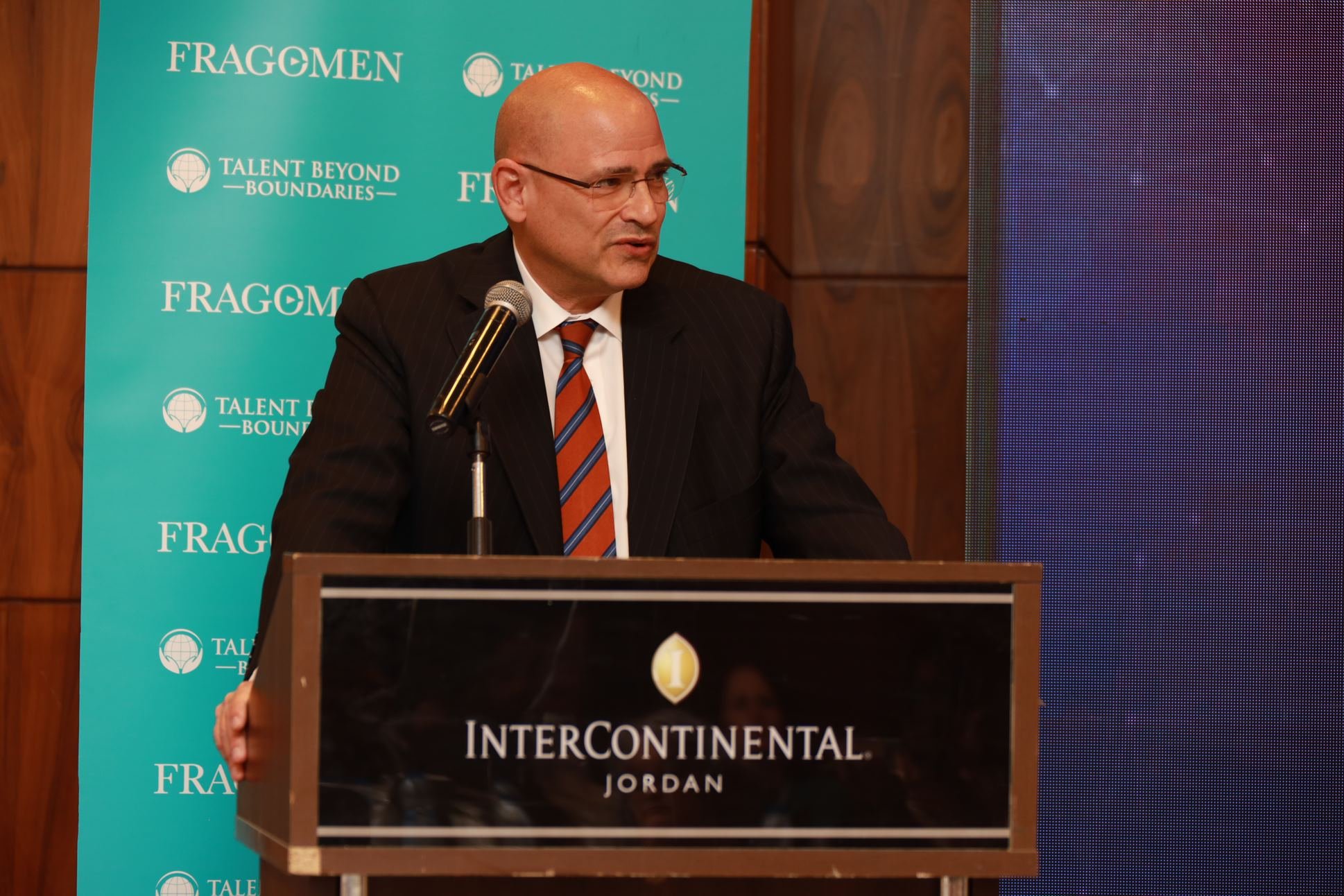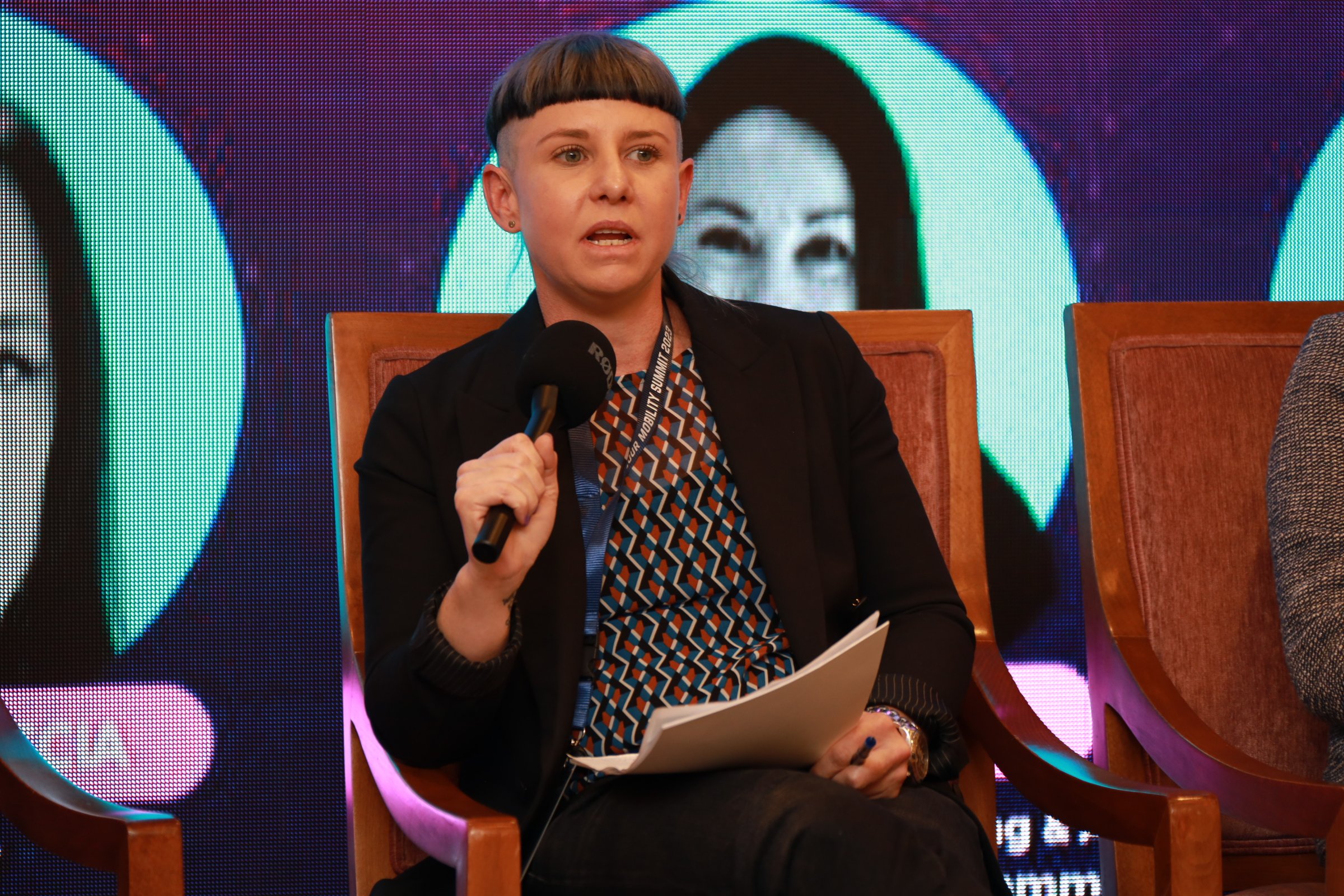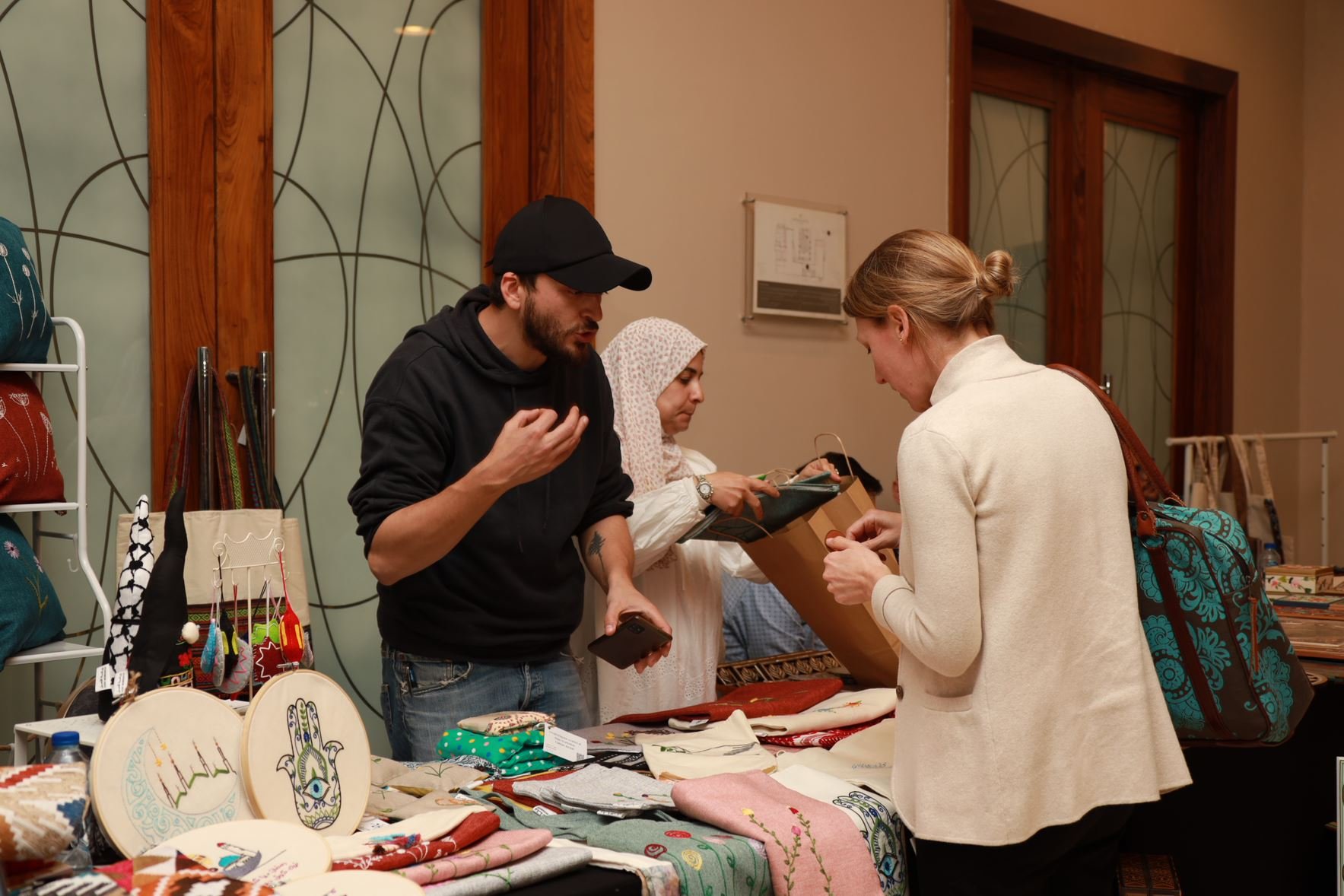2023 Global Refugee Labor Mobility Summit: Day 1
Pictured above: Bassel Ramli (Jumpstart Refugee Talent), Behati Maganjo (RefugePoint), Jenny Ghikas (UNHCR), Noura Ismail (TBB).
Day one of the first Global Labour Mobility Summit has successfully wrapped up in Amman, Jordan, after completing a full agenda of keynote addresses and panel discussions. Presented by TBB and Fragomen, and supported by UNHCR and the Global Task Force on Refugee Labour Mobility, the Summit is the first convening of the global community working to expand and strengthen the infrastructure to make refugee labor mobility and employment pathways a reality.
The day commenced with live-streamed opening remarks from TBB and Fragomen’s Noura Ismail (TBB Global Programs Director), David Manicom (TBB Global Advocacy for Displaced Talent Director), Stephanie Cousins (TBB CEO), and David Crawford (Fragomen Managing Partner). Their remarks highlighted the need for program scalability and included calls to action for stakeholder collaboration which set the stage for the vast range of sessions and roundtables that are to follow on the day and for the rest of the week.
‘We need governments to open the pathways, businesses to recruit, civil society to support pathways, and refugees to understand how they can access them,’ said Stephanie Cousins, CEO of TBB
For his part, David Crawford, Fragomen Managing Director, stated that ‘this Summit is a landmark event, not just about discussing the objective of opening pathways, but about how to make real and sustainable change in systems that have traditionally been inaccessible and bridge the gap between the private sector and humanitarian migration.’
The agenda carried on with a range of enriching keynote addresses from:
Bahati Maganjo, EMPP Consultant at Refuge Point
Cindy Munro, Minister-Counsellor, Migration and Refugee Affairs at the Permanent Mission of Canada to the UN, Geneva
Yiva Johansson, EU Commissioner of Home Affairs for the European Commission [Watch the full keynote]
The Honourable Andrew Giles, Minister for Immigration, Citizenship and Multicultural Affairs, Australia [Watch the full keynote]
Their speeches touched on key points including the importance of ecosystem-wide collaboration in the displaced labor mobility field, the reiteration of government support from different countries and the benefits of labor pathways for all.
As said by Commissioner Yiva Johansson, [these pathways are a ‘win for refugees, win for ageing economies, win for vulnerable refugees, as every one who finds a job leaves space for more vulnerable refugees.’
Providing an overview on existing global programs, Natasha Catterson, Partner at Fragomen, gave a briefing and went over the range of partners that make up the diverse network of refugee labor mobility, including the Global Task Force on Labour Mobility, Governments, and partners. Her presentation provided program background and shared key insights on the programs to date:
Over 1,100 people have secured a durable solution through labour pathways so far.
7 countries are either running official refugee labor mobility programs or have conducted pilot projects, and this network of destinations continues to grow.
TBB’s 5-year Strategy will guide the next steps to keep driving existing programs and implementing additional labor mobility schemes.
Consequently, four roundtable discussions took place on the main stage, covering different approaches to overcoming obstacles to opening and expanding pathways:
1A: The Role of Government
1B: The Role of Employers
2A: Populating the Talent Pool
2B: Case Management at Scale
We were honoured to have multidisciplinary representation across all four panels, which were were conformed by employers, partners, funders, TBB and Fragomen representatives, as well as refugee voices. Participants had the opportunity to talk about the strength of the programs operating in their respective countries.
Day 1 of the Global Refugee Labour Mobility Summit
Roundtable 1B: Overcoming Obstacles to Opening and Expanding Pathways: the Role of Employers
‘This is about a fundamental human right which is to have a career that is aligned with our interests and aspirations and that’s really important in self-determination and self-expression,’ said Lara Dyer, TBB Canada Director
Our presenting organizations are innovators at the forefront of displaced talent mobility and as such, shared details on their own work, the programs they are a part of, including their challenges and goals, as well as country-specific overviews that allowed for actual connections among the Summit attendees to start or continuing to work together.
The roundtables planted important seeds to continue collaborating with the present organizations and beyond, with the wider network of stakeholders needed in the supply and demand sides of refugee skilled migration.
On the second-half of the day, the agenda was complemented by a keynote by Hy Shelow, Head of Protection Service, MENA (UNHCR). The address focused on the Middle East and North Africa: Key Issues for Employment Pathways for Refugees. Monica Goracci, Director of the Department of Programme Support & Migration Management (IOM) also spoke about the importance of the international community coming together to support expansion of these pathways globally.
This is not a charitable engagement - it’s an opportunity to build people’s own capacity for self-help,’ said Hy Shelow (UNHCR)
Recognising the incredible importance of the private sector in our employer-led programs, Day 1 of the Summit also had several representatives from companies who either have hired or are planning to get enrolled in one of our country programs. One of them was Sharon Taylor, Chief Operating Officer of the global animation company Animal Logic, headquartered in Australia.
Sharon Taylor from Animal Logic on the role of employers and increasing private sector enrolment: “Having a dialogue about the challenges employers are facing with the government and what are possible avenues to get talent to destinations faster. How can we get them involved during visa process? To do this, it has to be a back and forth dialogue”.
UNHCR also organized a bazaar during the first day of the Summit in which refugee craftsman and woman got to sell their products which ranged from embroirdered bags and clothing, to handmade soaps and carved wood tools.
We have a clear vision of where we want refugee labor mobility to be in the coming years and the first day of the #RefugeeLMSummit certainly was a stepping stone in the right direction. We look forward to the next days of the Summit and the concrete actions that we hope to achieve from this convening.








